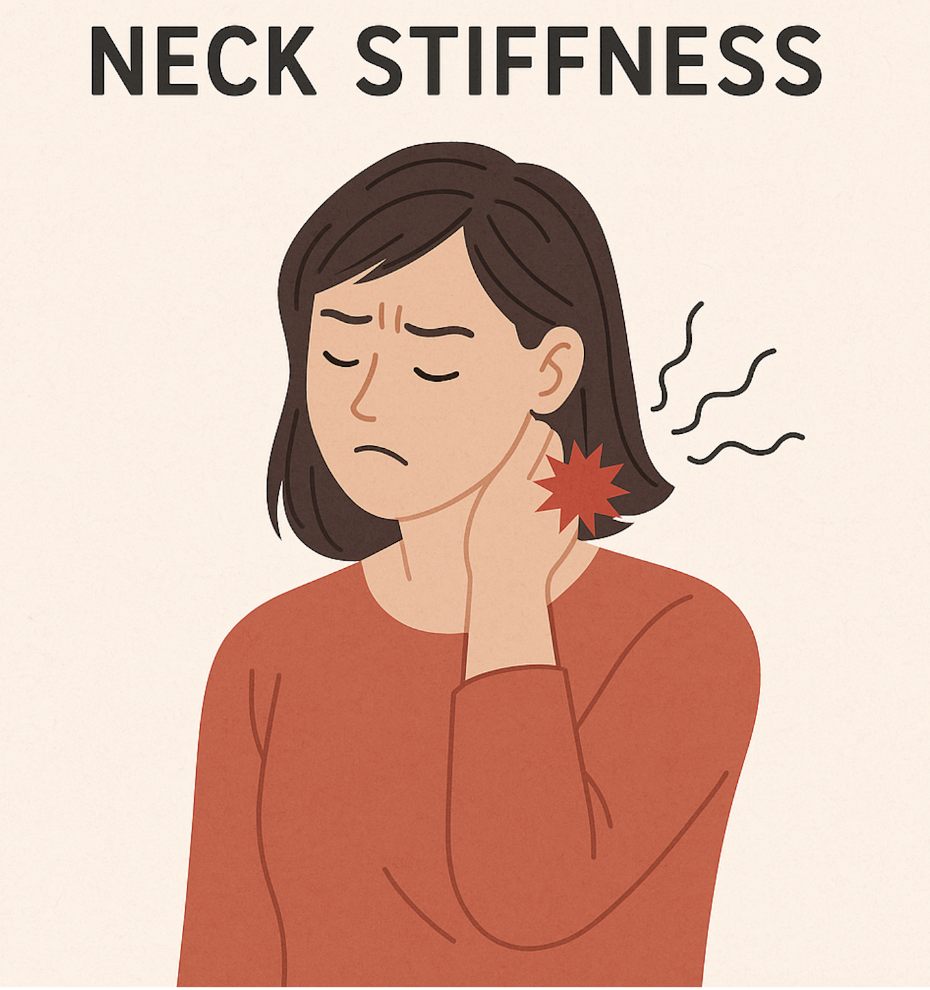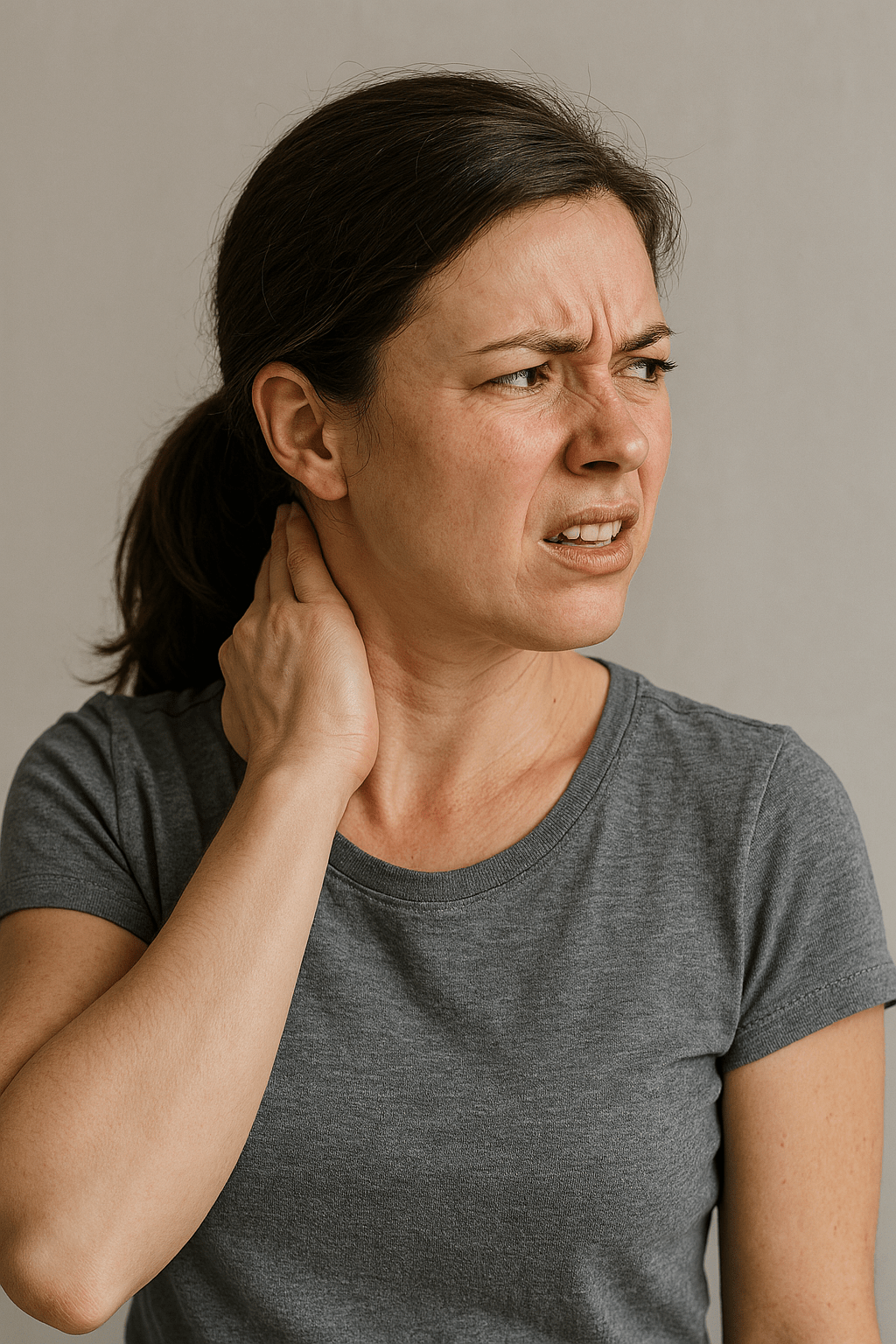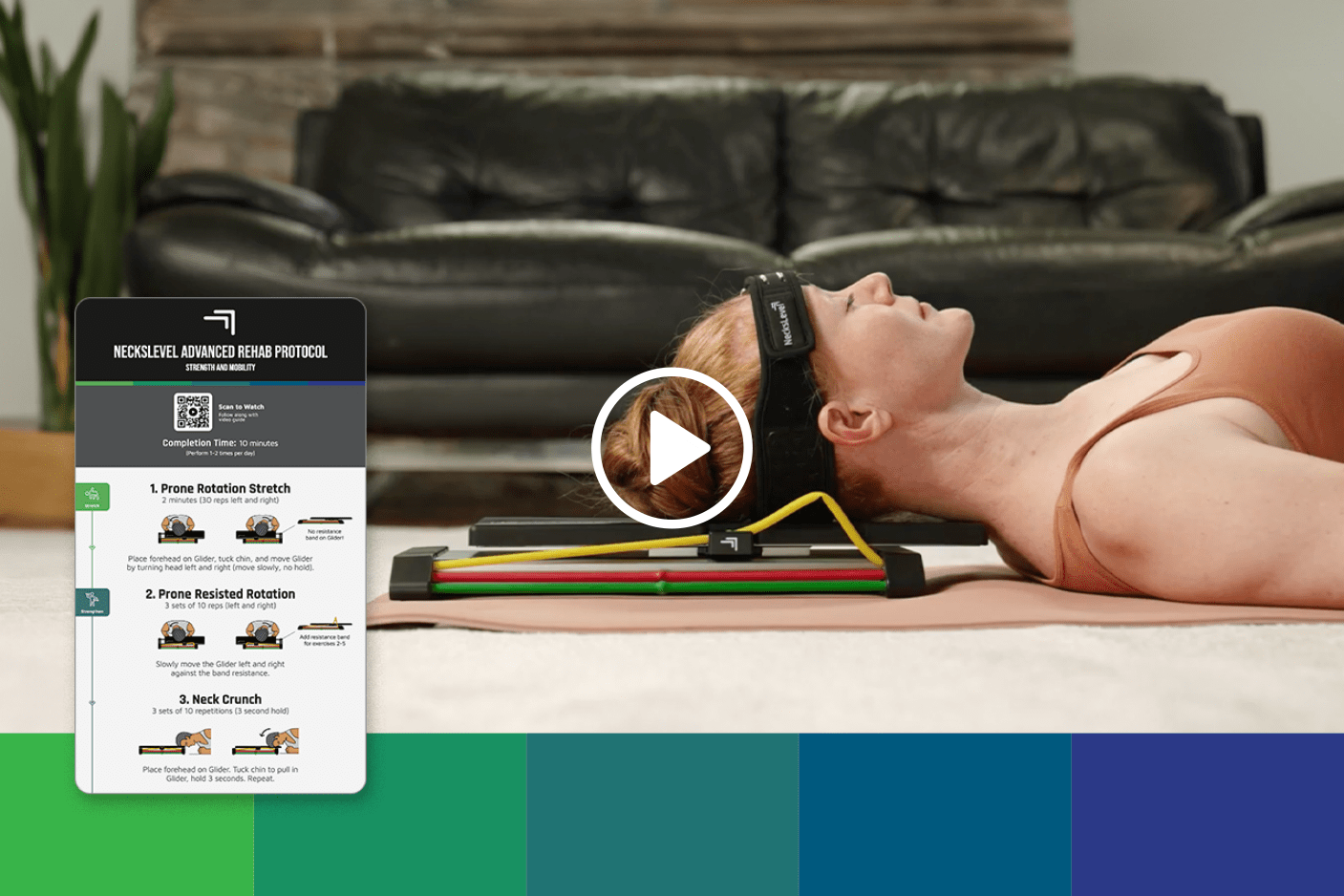Stiff Neck Causes and How to Cure Neck Tightness

Waking up with a stiff neck or dealing with chronic neck tightness can be frustrating and painful. Whether your neck is stiff on one side, you’re experiencing a pulled neck muscle and can’t turn your head, or you’re simply wondering why does my neck hurt, this guide will walk you through everything you need to know about stiff neck causes, symptoms, and effective treatments.
We’ll explore the reasons for stiff neck, common signs, what causes neck stiffness, and introduce helpful at-home tools like the NecksLevel Glide to improve your recovery and help prevent future issues.
What is a Stiff Neck?
A stiff neck refers to pain or tightness in the neck that limits your range of motion. You might notice neck stiffness when turning your head or tilting it from side to side. Sometimes, the pain comes on suddenly, such as after sleeping in an awkward position, while other times it builds up gradually due to poor posture or overuse.
A stiff neck and pain often go hand in hand. Some people describe it as a kinked neck or say the side of my neck hurts. If your neck feels tight, sore, or stuck in one direction, you’re likely experiencing classic stiff neck symptoms.
What Does a Stiff Neck Feel Like?
Stiff neck pain can vary from dull soreness to sharp, stabbing pain when moving. Some of the most common symptoms of a stiff neck include:
Neck feels tight and painful, especially on one side
Pain when trying to turn the head
Tight neck muscles or muscle spasms
Headache accompanying the tightness
Neck stiffness and pain that worsens with movement
Painful stiff neck, particularly in the morning
What Causes a Stiff or Tight Neck?
There are many causes of a stiff neck, and they range from minor strain to more serious conditions. Understanding what causes stiff necks is key to choosing the right treatment.
1. Muscle strain or tension
One of the most common stiff neck causes is muscle strain from poor posture, especially during sleep or while using electronics. Many people report a stiff neck after sleeping in the wrong position or spending too much time hunched over a screen. This can lead to tightness in the neck, chronic stiffness, or even a kinked neck.
2. Injury or sudden movement
A pulled neck muscle from sports, a fall, or even a sudden twist can cause severe stiff neck pain. In some cases, a person might wake up with neck pain and can’t turn their head due to a muscle spasm.
For cases like this, low-resistance training with the NecksLevel Glide can be a safe, guided way to begin activating and rehabbing those muscles once the acute pain subsides.
3. Stress and emotional tension
When we’re stressed, we tend to hold tension in our neck and shoulders. This can lead to tight neck muscles, a stiff neck and headache, and even nausea.
4. Underlying medical conditions
Arthritis, herniated discs, or degenerative spine conditions may cause constant stiff neck symptoms or make the neck stiff and painful over time.
5. Meningitis
In some rare cases, an infection causes swelling of the fluid and surrounding membranes of the brain and spinal cord. Meningitis is associated with neck stiffness, fever, and headache.

When is a Stiff Neck Serious?
While most stiff or tight neck issues are not cause for immediate medical care, certain symptoms should not be ignored. Knowing when a stiff neck is serious can help prevent complications.
Seek medical attention if you experience:
Stiff neck and fever
Stiff neck and nausea, especially with vomiting or confusion
Pain that radiates to your arms or causes numbness
Neck stiffness and headache that won’t go away
Stiff neck and back with difficulty walking or standing
These signs could point to more serious causes for neck stiffness such as meningitis, nerve compression, or spinal cord issues.
How Long Does a Stiff Neck Last?
For minor cases, stiff neck pain can resolve in a few days with rest and gentle stretching. However, chronic neck stiffness may last for weeks or months if the root cause isn’t addressed.
If you’re dealing with constant neck stiffness, waking up daily saying, "my neck is so stiff", or noticing that stiffness in the neck never fully goes away, it may be time to evaluate your posture, stress levels, and daily habits.
What to Do For a Sore or Stiff Neck
If you’re wondering what to do about a stiff neck or what to do for a sore neck, here are some simple remedies and exercises that can help relieve pain and tightness:
Stretch and exercise the neck throughout the day.
Avoid looking down at your phone or computer for long periods.
Use a supportive pillow when sleeping.
Practice good posture.
Try over-the-counter pain relievers as needed.
Avoid activities that make the pain worse.

Stiff and Tight Neck Remedies and Treatments
Let’s look at how to fix a stiff neck and relieve tightness effectively. These stiff neck remedies are safe and can be done at home.
Neck stretches and exercises
Slowly tilt your head side to side, forward and backward, holding each stretch for 10–15 seconds. Avoid forcing any motion. If your neck is tight and painful, move within a comfortable range. Check out this complete list of exercises for a stiff neck.
Massage and self-release
Massage can help relieve tight neck muscles. You can also use a warm compress or massage ball to gently release knots in the neck and shoulders.
Resistance-based exercises with the NecksLevel Glide
One of the most effective long-term treatments for neck tightness is active resistance training. The NecksLevel Glide was designed specifically to help you treat and prevent stiff neck pain through guided, progressive motion.
Unlike manual stretching alone, the Glide helps activate the deep neck flexors, stabilize weak muscle groups, and provide resistance without strain. It’s safe to use at home and is perfect for people experiencing chronic stiff neck, tightness in the neck, or neck stiffness after sleeping.
Proper ergonomics
If you work at a desk, adjust your chair, monitor, and keyboard to promote better posture and avoid hunching. Taking breaks every 30–60 minutes can help prevent stiffness in the neck.
What is the Cure for a Stiff Neck?
There’s no one-size-fits-all cure for stiff neck, but by identifying the cause, whether it’s stress, poor posture, injury, or a medical condition, you can find the best method to relieve the pain and prevent future issues.
Whether you’re struggling with a stiff neck from sleeping, dealing with a stiff neck and shoulder tension, or searching for relief from chronic neck tightness, consistent care and awareness can make all the difference.
If your stiff neck hurts more than a few days or is accompanied by symptoms like headache, nausea, or fever, consult a healthcare provider to rule out serious conditions.
Until then, take care of your posture, stretch daily, and treat your neck with the attention it deserves.
Written by:

Dr. Scott Dickenson, DPT, ATC
Physical Therapist
Scott is an Orthopedic Physical Therapist specializing in neck pain with nearly a decade of clinical experience. He regularly speaks at national Physical Therapy, Athletic Training, & Chiropractic conferences on neck injuries & rehab in sport.
NecksLevel Glide
"Like having a Physical Therapist in your home"
Professional neck strengthening and stretching in one compact device. Relieve neck pain while reducing neck stiffness & improving your posture.
SHOP NOW

Related Resources:







